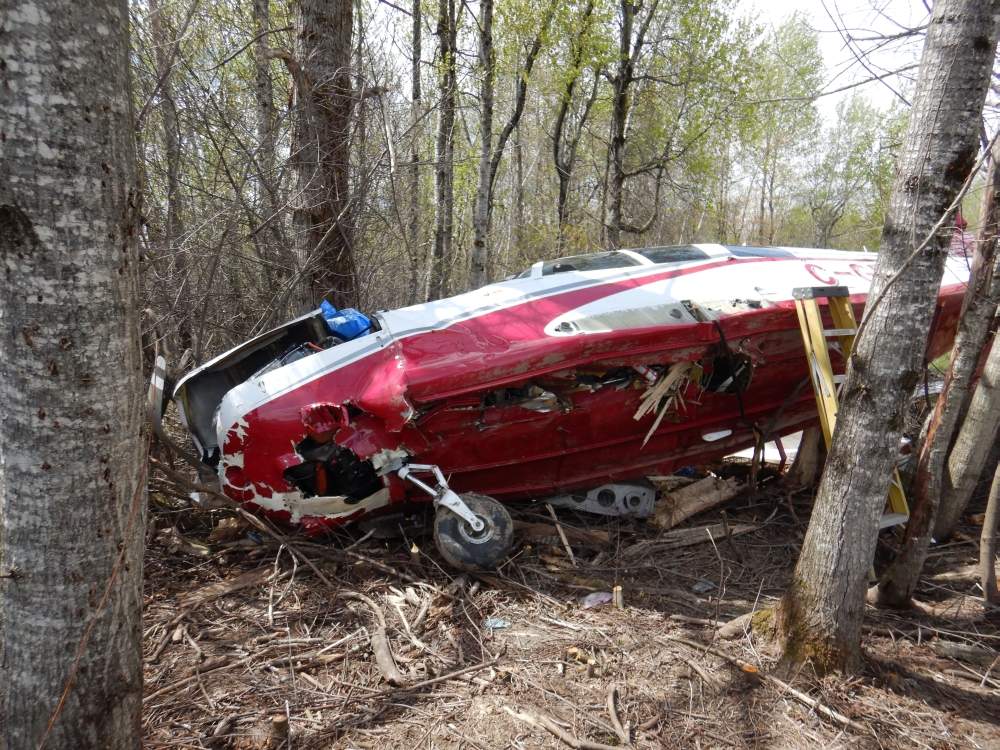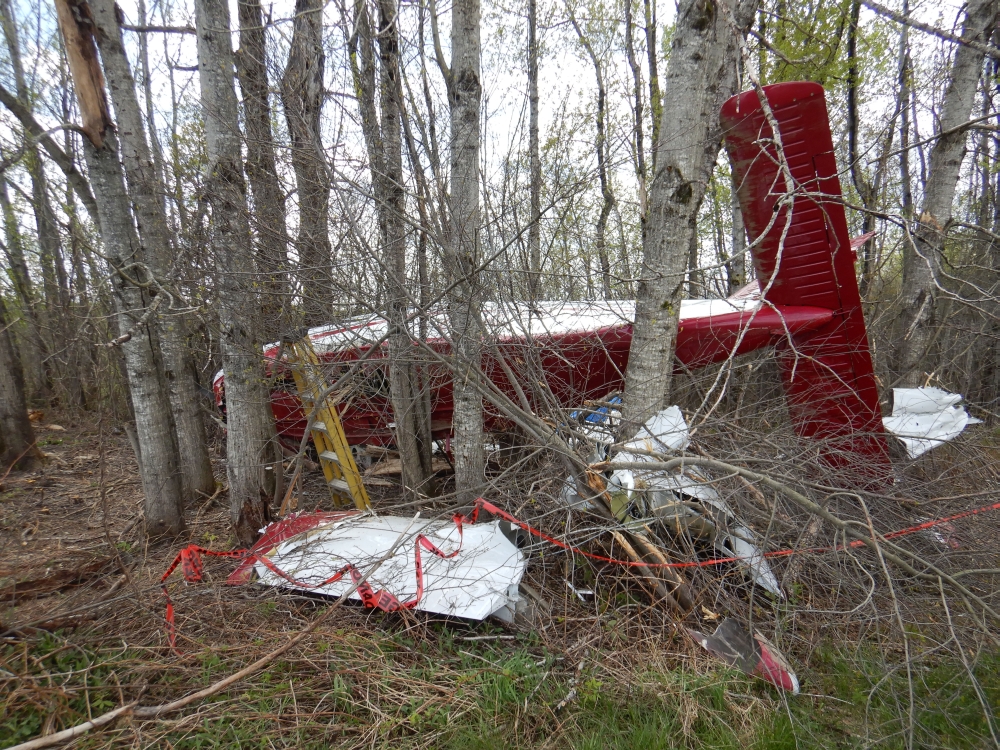Loss of engine power and collision with terrain
Privately registered
Piper PA-32-260 Cherokee Six, C-GEEV
Sherbrooke Aerodrome (CYSC), Quebec
The occurrence
On 10 May 2024, a privately registered Piper PA-32-260 (Cherokee Six) aircraft was conducting a visual flight rules (VFR) flight from Saint-Georges-de-Beauce Airport, Quebec, to Sherbrooke Airport, Quebec, with 1 pilot and 1 passenger on board.
Halfway through the flight, the pilot noticed a loss of oil pressure and a rise in oil temperature, prompting him to broadcast a distress call on the radio.
Approximately 2 nautical miles from destination, the aircraft's engine seized, forcing the pilot to make an emergency landing on a field adjacent to the airport terminal.
The aircraft came to rest in the trees and was destroyed by the impact forces. There was no fire. The 2 occupants were injured.
Media materials
Download high-resolution photos from the TSB Flickr page.
Class of investigation
This is a class 4 investigation. These investigations are limited in scope, and while the final reports may contain limited analysis, they do not contain findings or recommendations. Class 4 investigations are generally completed within 220 days. For more information, see the Policy on Occurrence Classification.
TSB investigation process
There are 3 phases to a TSB investigation
- Field phase: a team of investigators examines the occurrence site and wreckage, interviews witnesses and collects pertinent information.
- Examination and analysis phase: the TSB reviews pertinent records, tests components of the wreckage in the lab, determines the sequence of events and identifies safety deficiencies. When safety deficiencies are suspected or confirmed, the TSB advises the appropriate authority without waiting until publication of the final report.
- Report phase: a confidential draft report is approved by the Board and sent to persons and corporations who are directly concerned by the report. They then have the opportunity to dispute or correct information they believe to be incorrect. The Board considers all representations before approving the final report, which is subsequently released to the public.
For more information, see our Investigation process page.
The TSB is an independent agency that investigates air, marine, pipeline, and rail transportation occurrences. Its sole aim is the advancement of transportation safety. It is not the function of the Board to assign fault or determine civil or criminal liability.

